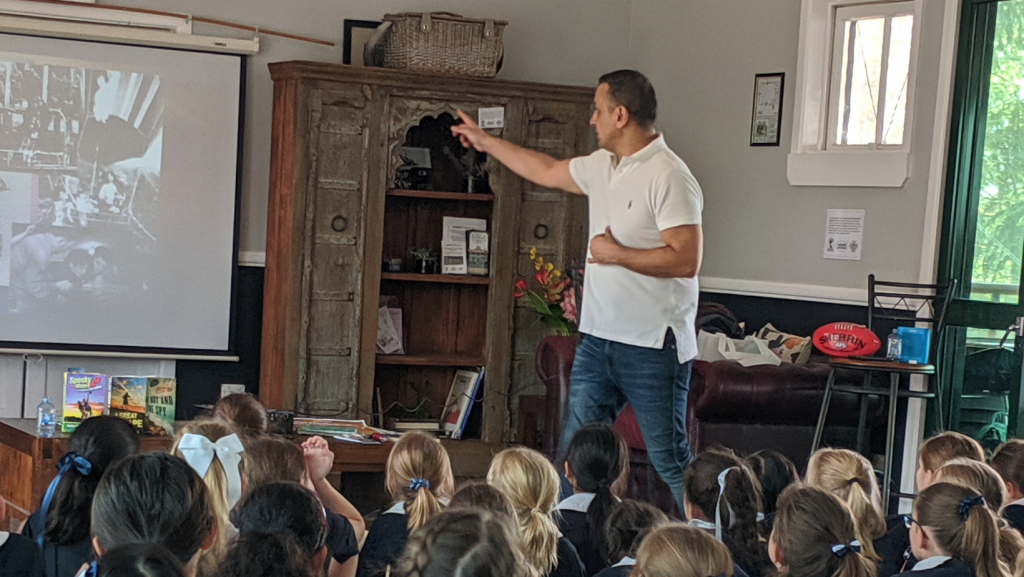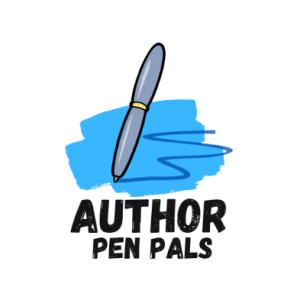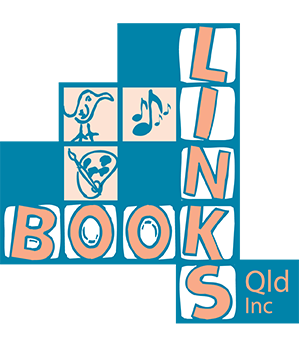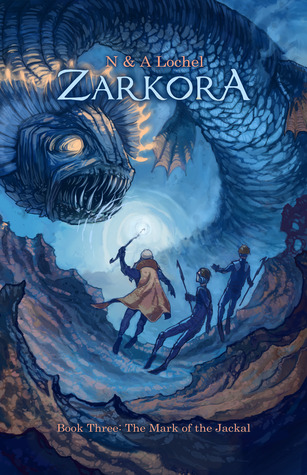 For Authors and Illustrators
For Authors and Illustrators
If you are an author or illustrator interested in working in schools, then this PETAA website is a must-read source of information. It will give you just about everything you need to know, from how schools operate, to advice on being a presenter and finally how to operate it as a business.
 For Authors and Schools
For Authors and Schools
Inspired by a similar program, Author Pen Pals is a brand-new initiative created for 2023 to connect Australian authors and illustrators with Australian schools, in particular those that rarely have the opportunities to host or meet authors due to a lack of funds or their remote location.
If you’re a published author or illustrator creating incredible books for primary school-aged children, then you’re eligible to join.
If you’re a teacher or teacher-librarian working in a primary school in Australia and think your class or classes would benefit from becoming pen pals with an author or illustrator for the school year, then please sign up.
Author Pen Pals is run by British-Australian children’s author, Kate Foster, and Dee White who is the international author of more than twenty-five books for children and young adults.
To find out more information about this project and to sign up as an author or school, go to the Author Pen Pals Website.
For Schools
Why have an author visit or attend a literature event/festival (what they do)
Keep in mind that authors and illustrators are not teachers, though some may have that training in their background, however your students can still learn a lot from them. They are also not entertainers or performers, though some do use that style of presentation.
The main outcomes are to provide inspiration and information to young readers, reluctant readers and possibly even to future book creators.
Sometimes it is not easy to see the outcome straight away, but after one festival, I visited a school where the principal pointed out to me a particular child with a book they purchased when attending a literature festival and the child was actually reading it. The principal said that this child had never read a book before and didn’t even want to go to the festival. At other schools, I have observed students able to identify books in their library by an illustrator they have seen and understand how that illustration was created. Jenny Stubbs
- Children realise that the people who create the books are ordinary people doing a job.
- They find out how a book is created from original idea to publication.
- They realise that it takes many drafts to create that book with editors involved in the process.
- They can ask questions of the creators to increase their knowledge and understanding.
What will they do?
Authors and illustrators will all have different ways and levels of expertise in presenting to students. When deciding on an author or illustrator to visit your school, or take part in your literature festival, you need to find out what sort of presentations they give, to what age audience and what size audience. Don’t assume they can all talk to a hall full of students. They may have outlines of sessions on their websites or on the websites of their Booking Agents. Do your research first.
Who should attend?
Depending on the size of your school, sometimes you need to target selected year levels rather than trying to cover the whole school. You can always cover other students in subsequent years so that over time, all students would have the opportunity to meet at least one author. It also depends on the style of the sessions. Workshops always work better with smaller groups. See if you can mix it up. Have two larger sessions targeting all students and one small workshop with selected students with an interest in writing. Or perhaps target students who belong to a book club or participate in a Readers Cup competition. But you could be surprised. Sometimes the most unlikely of students can produce some creative ideas and ask delving questions with a visiting author.
Create a budget
Authors and illustrators generally work at Australian Society of Author rates. Remember that they are not paid sick leave or holiday pay or super. They are self-employed and sometimes do school visits for only part of the year to help support the time they need to create.
If booked via an agent there is generally a booking fee to pay as well.
If an author is within driving distance there should be no additional costs, but if they must drive a distance, they may ask for travel costs.
If you have a cluster of schools or belong to a network, you could share costs to fly in an author, but remember you may need to cover accommodation as well. Some authors keen to work in an area are sometimes willing to cover their own costs of travel and accommodation.
Some agents representing interstate authors promote them when they are touring the state. Fees may be a bit higher to help cover costs of travel and accommodation but not always. If you are on the email list for some agents, they send regular updates focusing on their authors and which are touring where and when.
If you are in a regional area, consider applying for a RADF grant to bring an author to your school or region. The school generally has to contribute part of the cost but you can include in-kind contributions such as administration.
Check to see if your local branch of The Children’s Book Council of Australia offers any support for authors in schools. The Victoria branch does but sometimes other branches are open to suggestions for support, though not all branches would have spare funds.
Preparing for a visit to your school
Authors and illustrators usually offer three one-hour sessions per day. Talk to them to make sure you understand what they are willing to do. Create a proposed itinerary, then communicate with the author to confirm this is what they can do. For example, you might ask them if they can do three sessions, but your proposed schedule may have them hanging around the school wasting time or be so close together they don’t have time for a break. If they are changing rooms for each session, they will probably need extra time to set up and test the technology in each room. Having one space and bringing students to them is easier for the author.
If you have more than one visiting author, it works well if you have three equal sized venues and students rotate around so they meet all three, thus making it more of a festival.
The ultimate program has an author/illustrator visiting for a week to be writer or illustrator in residence, meeting targeted students at least once and running workshops to develop skills across the week.
Communicating with the author
- Provide clear directions on where to park and location of office for checking in.
- If they are there for a full day, it is polite to offer them morning tea and lunch.
- Ask them if they have any dietary requirements. It’s a great excuse for a shared staff lunch.
- Find out what technology equipment they need and if they will be bringing a presentation on a usb stick or own laptop. See what type of laptop to make sure you have the right connections for your projector. A clicker to use with PowerPoints are always welcome.
- Some authors ask for a microphone, especially when speaking to larger groups.
- Check to see how they would like students seated, (for younger children and more interactive presentations, floor seating can sometimes work better than chairs).
- Confirm the program and how many students will be in each session. They sometimes have handouts, so knowing numbers helps them to prepare. They may ask you to photocopy items for them.
Preparing the school
Prepared teachers and prepared students will ensure a more valuable experience for all.
Prepare a visual display in the library prior to the visit. This shows the author you have been preparing for their visits and students are familiar with their work. It is even more impressive if it includes work by children based on their books.
Find out which books the presenter will be focussing on their sessions and order in copies if required. If you are linking it to a CBCA Book Week event, you could order additional copies to be used as book prizes if you run competitions.
Would it work for a local bookseller to set up on the day of the event to sell to students? This is a bit like having a book fair but more focussed. Or could they supply stock for your volunteers to sell and earn some extra funds to help cover costs? They generally need at least three weeks notice to order in stock. Some bookshops are willing to set up a section on their website for online orders or provide order forms so students can order and pay for books in advance, and they are delivered to the school in time for the visit. Some publishers will allow you to order books direct from them and selling them yourself. This gives you the retailer’s discount. Some authors bring their own books to sell. You will need to factor time for book signing into your program.
Prepare your students by introducing them to some of the books by reading, discussing, and thinking about them. For younger students make sure you are not reading to them any title the author plans to read. Leave something for them to focus on.
Help students to compose questions that relate to the books they have been reading and not just the generic ‘where do you get your ideas from’ and ‘how many books have you written’.
Create a poster featuring a photo of the author, brief information about them and covers of their books. If you received sponsorship, add the sponsor’s logo.
Most of the above also applies to attending literary events. Prepare the students, prepare the teachers. The same displays can be set up and the same questions prepared.
On the Day
Arrange for someone to meet and greet the author on arrival and show them where to go. Treat them like a superstar. Make them feel special.
They may welcome a tea or coffee to kick off the day, especially if they have travelled a distance. Point out toilets and what arrangements if any have been made for morning tea or lunch. It may sound obvious but is frequently overlooked.
Assist with setting up. Making sure the technology works is often the most important task. Once that is sorted, the rest should be easy.
Point out where the book sales or book signing will be and when. Tell students not to ask for autographs, especially on scrappy bits of paper. The general protocol is authors only sign their own books.
Invite them to view your displays.
Provide a jug, bottle, or glass of water at their venue.
If it is Book Week, they may be asked to attend a school parade first to help set the tone for the day.
For workshops it helps to have students wear name tags big enough to be seen from a distance.
Authors frequently share stories of some staff who sit at the back of the room using their phone or laptop or having conversations on the side. Staff need to be involved and not treat it as non-contact time.
Space staff out so they can be close to potential problem children, but they shouldn’t prowl about calling out unruly students. This is more distracting than saying nothing. Remember the author is not a teacher or a performer and should be supported by the staff.
A school captain, class captain or fan could be asked to introduce the author or say thanks at the end of the session.
Take photos to share in your school newsletter or on the school Facebook page. If you are in an area with friendly newspapers, let them know well in advance in case they can drop in to do a report. Some are willing to accept your reports and photos emailed to them.
If your author is staying in a nearby motel, dining out with some of the staff or your organising committee may be an option, but they may prefer time to work on deadlines.
Illustrators
When you have a visiting illustrator, it is generally better to have smaller groups so children can see when they do live drawings or hold up pieces of work. Some schools have visualisers that allow illustrators to draw and have it projected onto a screen. This allows for larger numbers in the room. They may bring all their own art materials but ask you to provide a large sturdy whiteboard or flipchart holder and paper. The advantage of the paper is that the school gets to keep what is created. It pays then to invest in good quality cartridge paper.
Many illustrators work digitally so they may bring a drawing tablet to connect to a screen.
Follow-up
Collect feedback from students and teachers to see how well the visit went. The author may be interested in receiving some of the feedback. Contact the author and ask for their feedback as well. How well did they think their sessions went?
Are there any reports or photos you can send to the media or publish in your school newsletter?
If your visit was funded or sponsored by an organisation or funding body, ensure you provide them with some reports.
When your Visit is Virtual
With the tyranny of distance in Australia, a face-to-face visit is not always possible, but in this age of technology, virtual visits are. Many authors now offer online options via ZOOM, Skype or similar. There are suggested rates on the ASA website. The sessions may not have the same intimacy or create the same level of excitement as the real thing, but at least it gives the students an opportunity to engage with authors. The author may even be willing to post signed book plates for students who purchase their books.
How to book an author or illustrator
Keep in mind that although you may love a particular book, the author or illustrator may not be comfortable being a presenter in schools. The author’s site will usually say if they do school visits or check the booking agents’ websites.
Authors and Illustrators generally work at Australian Society of Author (ASA) rates, though some at the start of their career may be willing to work for a lower rate and ask you to provide honest feedback on their presentation.
In general authors can be booked either direct via their website, or via an agent. Some have more than one agency handling their bookings. Some handle their own bookings via their websites.
If you are running a festival where you are booking a number of authors, you can approach their publisher to make contact. This means they may also add your event to their author’s appearances calendar.
Booking agencies
Becky’s Literary Bookings is a South Australian based agent focused on SA authors and illustrators but does include some from other states.
Booked Out is a Melbourne-based agency with a wide range of speakers available mainly in Victoria and Queensland with some in NSW.
Creative Kids Tales Speakers Agency is based in NSW. They have a range of speakers from different states.
Creative Net is a Melbourne-based agency set up through Ford Street Publishing. The do not charge a booking fee.
Lamont Authors booking agency based in Victoria has a range of presenters.
Lateral Learning is a Sydney-based agency. They have mainly Sydney-based authors and illustrators with some country and interstate authors and illustrators also registered with them.
Nexus Arts is a Melbourne-based agency and tours performers and presenters throughout Australia and New Zealand.
Speakers Ink is a Queensland-based agency with just under 200 speakers, authors, educators, illustrators, poets and performers, that also represents speakers from other states, New Zealand and overseas
Other websites with advice
Book Week for Beginners by Barbara Braxton
Scholastic (refers to their authors but has some good points)
A Bit about Festivals
Planning a literature festival, or as some call them, readers and writers festival, is a huge task. You need a great committee with knowledge about presenters, costs involved, grant options, venues, programming, accommodation, travel, promotion, advertising, volunteers, book sales etc.
I usually start with venues. What venues do you have? How many? What is their capacity?
That will indicate how many presenters you can program into the spaces, depending on how many sessions per day you want them to cover. Some festivals have authors doing two sessions per day, while others three. Most festivals offer 45-minute sessions and some an hour.
Will you be selling tickets or is it a free festival? The general cost in 2021 is $8-10 per ticket. Estimate the total number of students you can accommodate each day across the venues, e.g. 6 concurrent sessions each catering for 100 students will equal 600 students. Then how many sessions in a day could they attend? If your program has 4 sessions, then that would be 2400 tickets X $8.
Unless you are using local authors, you will need to factor in flights and accommodation and meals. As a general indication, I would allow $1000 per day per author plus airfare and airport transfers.
Add on venue hire if you are not based at a school. Sometimes local councils will partner with you and provide venue hire at no charge. This could be at a Civic Centre.
Festival Focus
It is interesting to observe that in Australia most literature festivals/writers and readers festivals for adults, attract fans with a focus on the inspiration behind the book and who the author is, rather than the writing process, although there are some festivals dedicated to the creative process for emerging writers. Festivals for children, however, where children attend during school time, often focus on the writing process, more than the story behind the book. And children don’t usually select which author they wish to meet. It is the teacher who decides which sessions to take their class to.
In comparison, in the UK the ethos of the Bath Festival is simple: to entertain. The organisers have strived to create a friendly, family atmosphere in which young book fans can come along to Festival events and meet their favourite authors and book characters. Events regularly feature much humour and book readings, as well as craft activities, quizzes and games.
Australian Festivals
There are a number of children’s literature festivals in Australia, but some are addons to major city festivals for adults and attract a lot of government funding. It is very difficult for smaller festivals to acquire funding, and even harder when they are school based.
The main dedicated children’s literature festivals are school-based and have paid directors. The one exception is StoryArts Festival Ipswich which is run by a network of Teacher-Librarians using public spaces, has no paid staff and offers free sessions for children in both the school and family programs. Their income is from the sale of their annual CBCA Book Week publication and supplemented by grants. In the past these have come from Australia Council, Arts Qld, Copyright Agency, RADF and Ipswich City Council, but grants are much more difficult to obtain now, unless you are a very big festival such as the writers’ festival held in most capital cities.
The main festivals that are totally for children or youth are:
WA
Scribblers Festival – annual, Perth area, not for profit, end of May, schools and family programs, attract major funding.
Between the Lines Festival – Busselton and Bunbury in conjunction with Dymocks, 2 days in Busselton and 1 in Bunbury, for schools, plus 1 Family Day, held in March
SA
Once Upon a Festival – a unique event in South Australia and is one of the largest literary festivals for young people in Australia. Thousands of young people have the opportunity to experience a stellar lineup of world-class authors and illustrators in workshops, talks & special events over two days, with the aim of fostering a lifelong love of literature in students aged 7 – 17 years. An initiative of Immanuel College, and in collaboration with Immanuel Primary School, City of West Torrens and QBD Books.
QLD
Somerset Storyfest – annual since 1994, Gold Coast, not for profit, held in March, 4 days schools and community programs, supports other schools to attend, managed by Somerset College. P-12
StoryArts Festival Ipswich – biennial since 1995, Ipswich area, free, not for profit, held August/September, 5 days primary school program, family sessions, includes a conference, run by IDTL Network
Voices on the Coast / Beyond the Book – annual since 1996, not for profit, held in February, 3 days schools (middle primary to secondary) and community programs, managed by Immanuel Lutheran College in partnership with University of the Sunshine Coast. Paused as of 2024.
Whitsundays Voices Youth Literature Festival – annual since 2004, mid-July, three-day celebration of reading, writing and creative thinking, non-profit organisation that relies on strategic partnerships with local businesses and ticket sales to deliver a fun, educational, cultural, and community-building experience for students P-12. Managed by Whitsunday Anglican School.
Step into Stories, Toowoomba – annual event since 2013. They don’t have a website. “It is organised by our local QSLA Subcommittee, and this year the organisers are Merry Thompson and Trudi Burgess. It is held in July or August (August 3-5 this year). We invite authors/illustrators (usually 3), make them available to Darling Downs schools for bookings, and we transport the authors to the schools for sessions. Schools pay a set amount per author session. QSLA set us up with some initial funds to get it going to book the authors. In the past we have had after-school ‘Meet the author’ sessions in the Japanese Gardens, but we haven’t done that for quite a few years. We always have a dinner one night and each author gives a presentation about their work. This year the dinner is at Urban Grounds on Wednesday evening, August 4. Contact Merry Thompson Meredith.Thompson@twb.catholic.edu.au for more information.” Marie Miegel, The Glennie School
There are also a number of schools that run their own festivals, with some open to other schools e.g. feeder schools attending high school programs.
Here are some examples. There are many more.
The Feast of Words at Coonabarabran High. This is an annual writer’s festival. They invite the feeder primary schools to attend for part of it. Three days in July. It is free for the feeder schools to attend and for all our students. It is funded through Equity funding and have accessed grants from the Copyright Agency and Foundation for Rural & Regional Renewal in the past.
Cherrybrook Technology High School, NSW – annual Year 7 Literary Festival – school only. Kids pay a capped amount, and the library subsidises it. In 2020 – total of 13 presenters: 3 poets, 3 illustrators, 5 authors and 2 authors/illustrators. Kids go to different sessions. They each have at least one workshop with an author, poet, and illustrator (total of 4 workshops). There are also general presentations to half the year group and one to the whole year group.
Writing Festivals
Some festivals do focus specifically on writing and Little Scribe is one and is all online. A live interactive mini-writing event for schools in Australia and New Zealand. Usually held around July- August.



